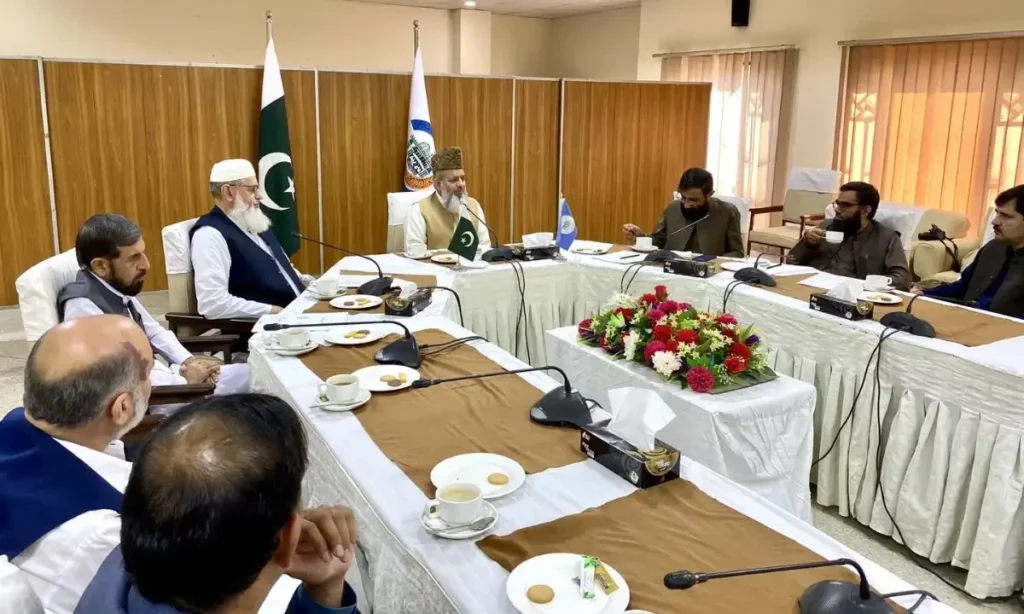VPN Usage
The Council of Islamic Ideology (CII) has officially declared the use of virtual private networks (VPNs) as “un-Islamic,” in response to a growing concern over their misuse in Pakistan.
This announcement coincides with a directive from the Ministry of Interior, which has asked the Pakistan Telecommunication Authority (PTA) to block illegal VPNs throughout the country. The government’s stance reflects an effort to curb access to content deemed immoral or harmful from an Islamic perspective.
In a statement released on Friday, CII Chairman Allama Dr. Raghib Hussain Naeemi explained that the government holds the authority to restrict access to any material that conflicts with Islamic teachings.
He emphasized that preventing access to inappropriate or unethical content aligns with Sharia, and the use of VPNs to bypass these restrictions is contrary to Islamic law.
The Ministry of Interior’s letter to the PTA earlier that day expressed concerns that illegal VPNs are being exploited by terrorists to carry out violent acts, as well as to access prohibited content, such as pornography or blasphemous material.
These concerns prompted the ministry to call for the immediate blocking of unregistered VPN services across the nation.
VPNs, or Virtual Private Networks, are widely used globally to circumvent internet restrictions and gain access to blocked websites. In Pakistan, VPNs have become a popular tool for users looking to access restricted platforms like X and other similar sites.
However, the government’s focus is on curbing the misuse of these networks, particularly in cases where VPNs are being utilized for illicit purposes.
In its own report, the PTA revealed that it has already blocked more than 100,183 URLs containing blasphemous material and an additional 844,008 indecent websites.
Furthermore, the PTA noted that around 20 million daily attempts are made to access indecent sites from within Pakistan, all of which are blocked at the international gateway level.
According to Naeemi, these actions are in accordance with Sharia, as they seek to prevent exposure to “unethical and offensive content.” He reiterated that using VPNs to access blocked or illegal websites constitutes a violation of Islamic law, particularly when the content in question undermines societal values or legal compliance.
The CII welcomed the PTA’s efforts to implement these restrictions and praised the measures being taken to block illegal VPNs. Naeemi elaborated that VPNs, by allowing users to mask their true identities and locations, can also be used for unlawful activities, including online theft. This ability to conceal one’s identity makes it difficult to trace the individuals involved in criminal acts, further highlighting the need for government intervention.
Naeemi stressed that using VPNs to access prohibited websites is classified as “assistance in sin” under Islamic law, which is strictly forbidden. He emphasized that every Muslim has a duty to uphold the laws and constitution of their country, as long as those laws do not conflict with Islamic principles.
Moreover, he noted that accessing websites that have been blocked for societal benefit is a clear violation of Islamic ethics.
The CII chairman also referenced the council’s prior discussions on the misuse of social media, pointing to a meeting held on May 3, 2023, where several recommendations were presented.
Among these recommendations was the need for the PTA and the Federal Investigation Agency (FIA) to accelerate the registration process for social media platforms, ensuring that their use aligns with ethical and religious standards.
In conclusion, the Council of Islamic Ideology has called for “immediate action” to block VPNs and reinforced the need for regulatory measures to address concerns about online safety, legal compliance, and Islamic values.
Naeemi’s statements reflect the council’s ongoing commitment to ensuring that technological advancements, including internet usage, remain consistent with the moral and ethical guidelines outlined in Sharia law.


